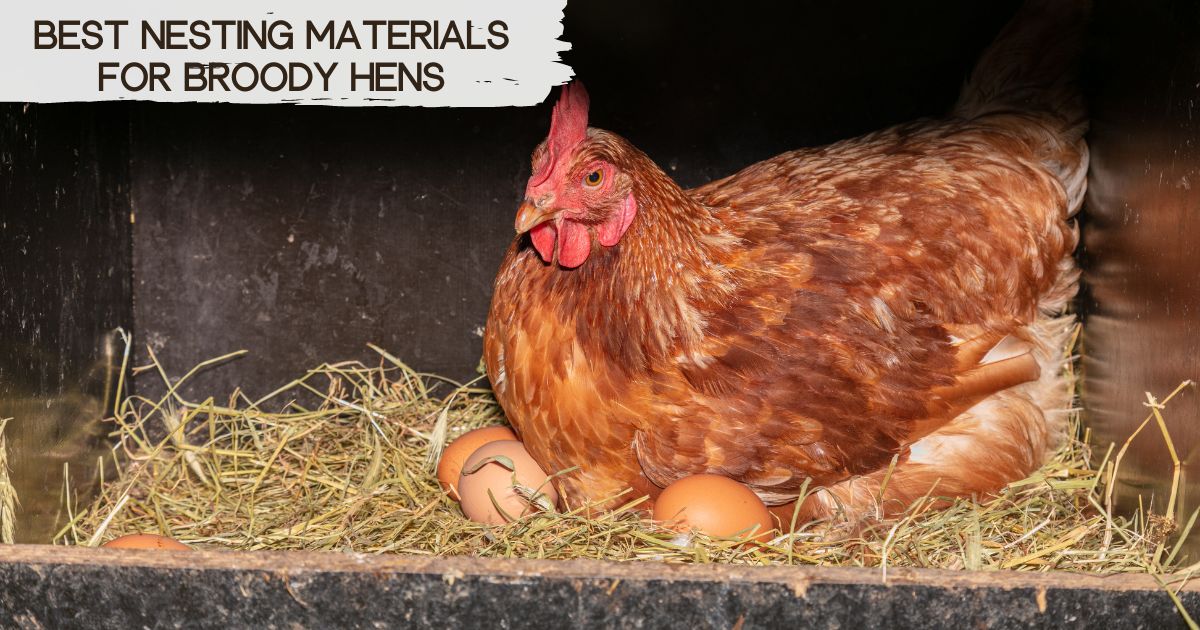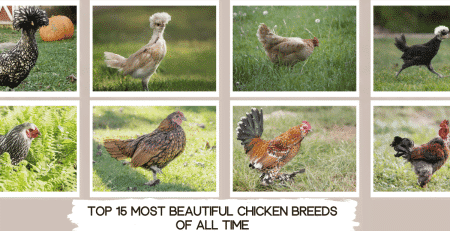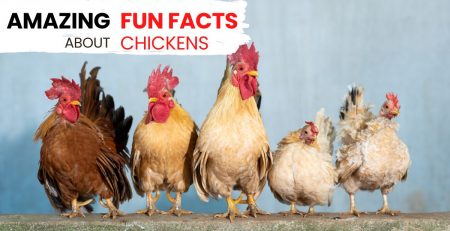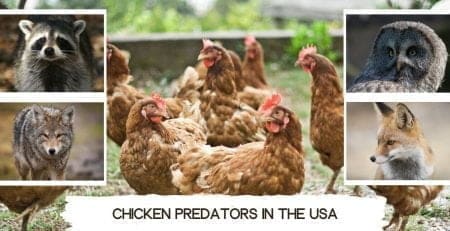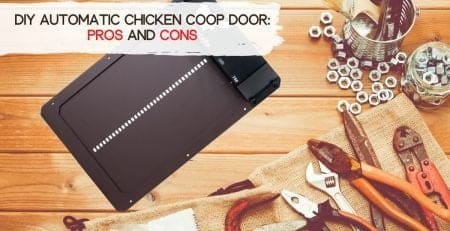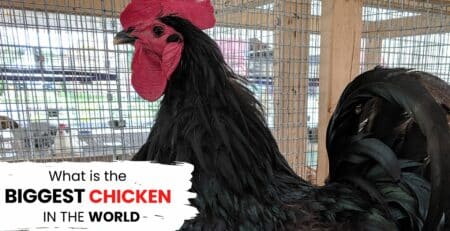Do you, like many others wonder how to make your chickens even happier so that they will lay more eggs? One of the key ways is choosing the best nesting materials for the nesting box. For many people, wood shavings are the go-to option as they don’t absorb liquids and create dust particles which can make breathing difficult for the chicken as well as for you. But there are some other options, too.
No matter what your chicken nesting boxes are made of, it’s important to have some kind of filler. Proper materials will help keep eggs clean and prevent them from breaking. Also, cleaning the nesting box will be a much easier job.
In this article, you will learn:
- How do you get your chickens to lay in the nesting box?
- Why do hens need nesting materials in their nesting box?
- What are the top 3 best nesting box materials for your broody hens?
How do I get my chickens to lay in the nesting boxes?
New layers are the most likely to lay somewhere outside the nest. This is probably because they don’t know where they are supposed to lay. The eggs will be dirty and probably break if the hens lay outside the chicken nest. Some hens will even eat them. This is the behavior you certainly don’t want for your flock. So, how do you get your chickens to lay in a nesting box?
- Provide enough chicken nesting boxes. We advise you to prepare one nest for up to three hens. If you don’t provide enough nesting boxes, some chickens might lose their patience and lay somewhere else.
- Make sure your chickens feel comfortable in their nesting boxes by choosing suitable nesting materials.
- Keep your nesting boxes clean. To maintain the cleanness of the chicken nesting box, it is essential to choose the best material. You can choose among the following materials: plastic, wood, and metal. While plastic and metal are the easiest materials for sanitizing, bleaching, scrubbing, and sterilizing, wood is not.
- You can even train your chickens to lay more eggs by putting an artificial egg in a nest. They come in various materials, from plastic, ceramic or wood.
- Provide curtains for a feeling of security for your hens. The curtains can hide eggs from the chickens that might otherwise peck and hurt them and can help provide heat after the chicken leaves the nest.
- As a flock keeper, who loves chickens, you want them to be safe from predators who see your girls as delicious snacks. The best way to protect your flock from predators is to install an automatic chicken coop door. It is a game-changer! It has a light sensor that opens the door at sunrise and closes it at sunset. And you get to sleep longer!
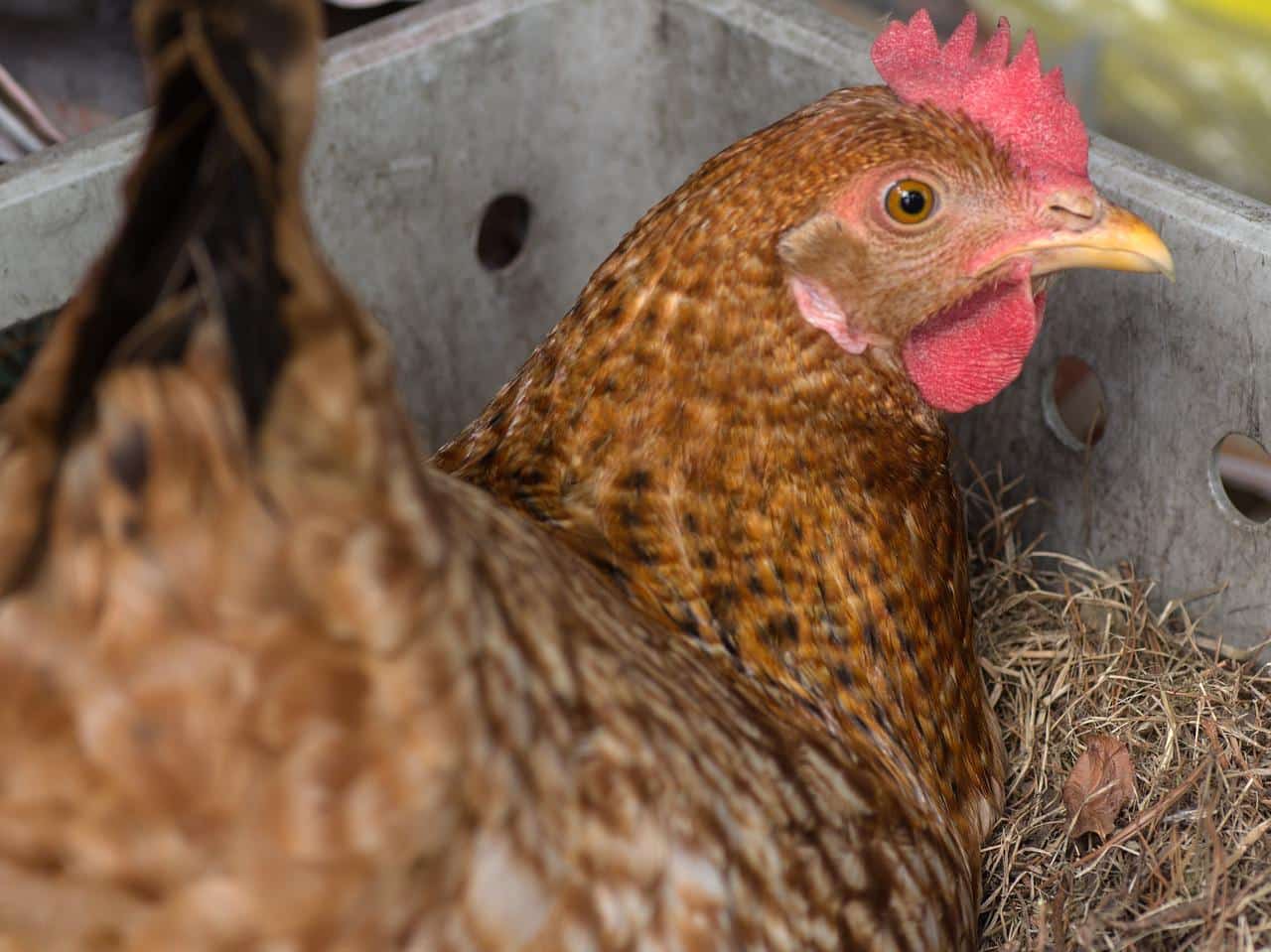
Why do hens need filler in their nesting boxes?
One of the reasons you should regularly change the filler in the chicken nesting box is that the suitable nesting material provides a feeling of security to your chickens, and because of that, they will more likely lay eggs in the same place. So, you, as the flock keeper, will be more likely to know where to look for the eggs. According to scientific studies, one of the three most important things about nesting behavior is that hens want loose nesting material. Numerous studies show that hens mostly choose nests with nesting material rather than boxes without it.
Although our chickens were domesticated centuries ago from a wild bird native to South-East Asia called the red junglefowl (Gallus gallus) they still show some behavior similar to their relatives living in nature.
These are the most important facts you should keep in mind before preparing a nesting box for a broody hen:
- We need to consider that the nesting materials imitate a nest they would build in the wild with branches, moss, and other scraps.
- Chickens like to get in the nesting boxes and move the filler around with their body, legs, and beaks.
- The filler should be soft, and comfortable but also provide a secure foundation for the chicken’s feet and legs.
- A suitable nesting material prevents eggs from cracking or breaking. It keeps away mice and makes cleaning easier.
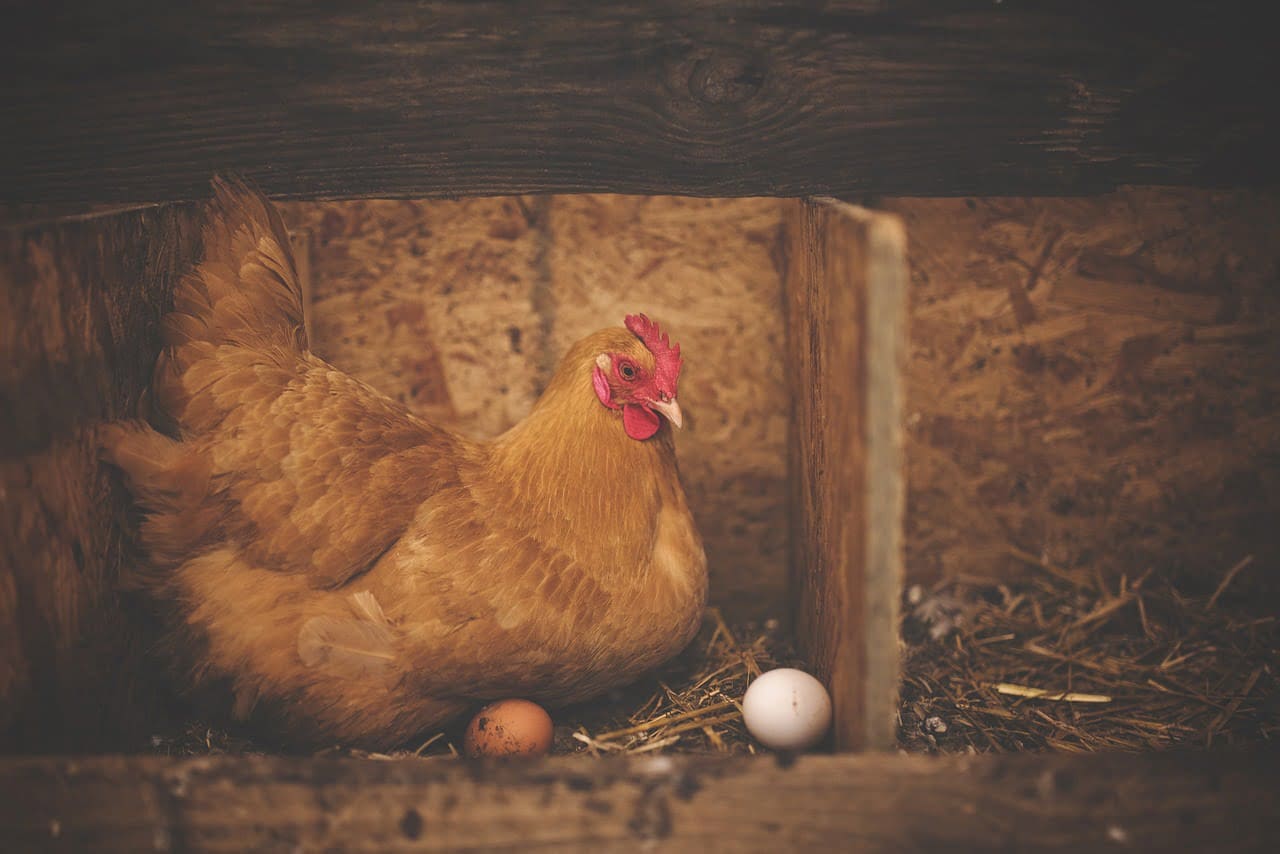
What are the top 3 best nesting materials for chicken nesting boxes?
WOOD SHAVING
Among wood shavings, the most popular are pine and cedar shavings. The advantage of wood shavings is that they have a pleasant aroma and dry quickly. Wood shavings are popular because they are cheap and easily available as well. This nesting material provides warmth and comfort to the hen while she lays her eggs. Eggs can be easily collected from wood shaving nests.
STRAW
Straw might be better for your hens than hay since it’s drier and less prone to carrying mold. Besides that, it is less expensive than hay. Another advantage of straw for your chicken is that straw is low-dust in and has a small number of pathogens, and that fact is essential for your chickens since they have weak respiratory systems.
LEAVES AND GRASS
Some people recommend using fallen leaves or grass clippings as chicken nesting materials. The advantage of this material is that this is a no-cost option. However, be careful, leaves and grass are often treated with chemicals, and hens should not eat this. They can also be full of insects that you don’t want in your coop or garden. Another disadvantage of yard waste is that this is not a very absorbable material, so it needs to be changed often.
Just a quick tip. Think about putting some herbs in your hens’ nests. Herbs smell nice and they can also improve egg production. They can influence the health and wellness of your laying hens. You can even put some herbs (fennel, artemisia, kankerbossie, garlic) in the water and make tea for chickens.
Remember when you prepare nests for your hens that these nests are the beds where your girls will be resting and laying eggs. If they feel comfortable and secure, they will more likely lay eggs in the chicken nesting box. Take good care of your flock, and you will have healthy, delicious eggs for years. Share your experience of raising chicken in our Facebook group Chicken&Egg lovers.

